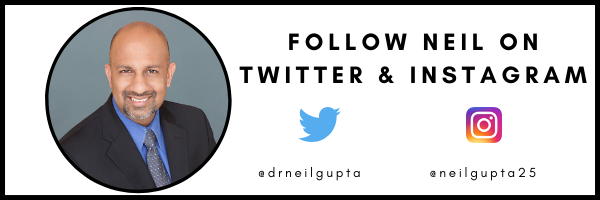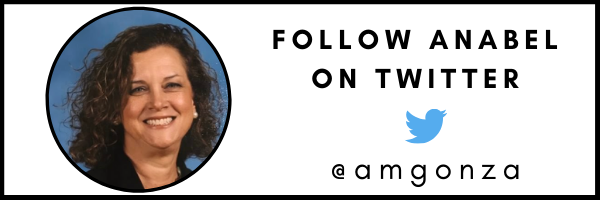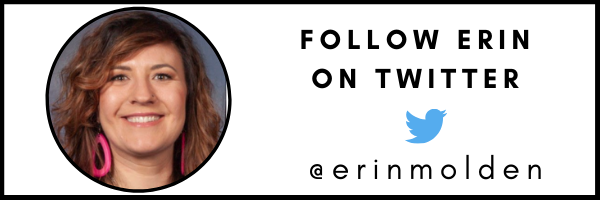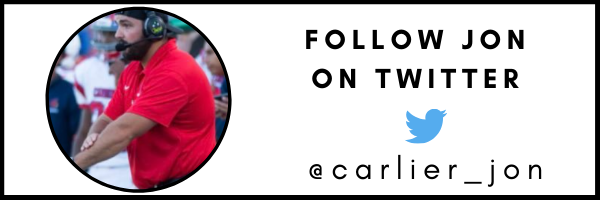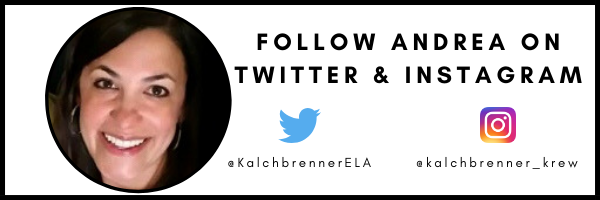TL;DR:
- Reflections on a book study of Upstream: How to Solve Problems Before They Happen by Dan Heath.
- This book provided insights to institutionalized problems and how they can be solved.
- Each member of the book study shares their favorite quote from the book with their biggest takeaways.
In April, I had the pleasure of hosting a virtual book study with the great Neil Gupta. We read the book Upstream: How to Solve Problems Before They Happen by Dan Heath.
Not only was this book a fantastic read, but it also provided great insight to institutionalized problems and how we can begin to solve them. And I was able to connect virtually with a solid group of educators to discuss what we read. As a team, we decided to share our reflections, takeaways, and actionable steps gleaned from reading the book.
Upstream thinking is just like it sounds. You find ways to move “upstream” to ensure problems don’t arise instead of trying to solve them in the “downstream” after they’ve happened. Heath provides multiple case studies of this type of thinking and traps we fall into that prohibit upstream thinking. He then gives suggestions on how to move your own and your organization’s thinking to that upstream place.
I thoroughly enjoyed this book, my reflection, and this group. Here are each of our biggest takeaways!
You find ways to move 'upstream' to ensure problems don't arise instead of trying to solve them in the 'downstream' after they've happened. Share on XNeil Gupta
Favorite Upstream quote: “When everything is cause for alarm, nothing is cause for alarm.”
About 10 years, I facilitated conversations in our district about the notion of “power indicators” – the state learning indicators which are most important and leverage other indicators or essential learning. One teacher challenged this notion that all of the indicators are essential for learning. If we really believe that, we end up with frustration and confusion to our students and ourselves when we try to ensure understanding of essential learning from the class for the next level or find the need to pivot or alter plans.
We need to be able to, as a team, identify what’s essential, so we can provide support and intervention to ensure mastery. If we are truly honest, we do believe some things are more important than others. The goal is to overtly identify those things as a team, as well as provide clarity for those involved in the use of them. Heath’s quote reminds me of the importance of identifying what’s essential and clearly articulate it for ultimate success.
Anabel Gonzalez
Favorite Upstream quote: “We are so focused on saving the drowning kids in the river that we fail to investigate why they need saving at all.”
Upstream thinking requires courage and the willingness to swim against the current to challenge the status quo. While it can be lonely and exhausting, with clear purpose and vision it can be very productive. Take for instance the salmon. They swim upstream to calmer waters in order to reproduce and give their offspring a better chance of survival. Downstream waters are more crowded, increasing the risk of eggs being eaten. However, it’s also risky and many salmon die in the process.
Likewise, unfollowing the crowd can give us clarity and strength, giving our mission a better chance at survival, but it’s also risky. Upstream efforts can jeopardize careers and relationships, and our ideas may not survive. That’s why it’s important to have a clear plan and purpose and to not swim alone. The goal is to shift the direction of the current and that will require a movement in order to make lasting change.
Erin Molden
Favorite Upstream quote: “Move your chair, why don’t you.”
Upstream thinking reminds me of being a scientist. As a biomedical researcher, my job was to investigate the root cause of disease and work to understand how a faulty biochemical process impacted the body, resulting in downstream symptoms.
In reading this book, I found many similarities to scientific thinking. It is important to understand all of the variables in a given situation so that we can fully evaluate and improve the outcome for a patient. In our classrooms, we need to take the same approach to understand where our students are so that we can best serve them.
The quote that stood out to me was early in the book and it says, “Move your chair, why don’t you?” Often we think unhappy situations are out of our control or above our pay grade. Perhaps if we merely shifted our position, our perspective would change, and we would be able to appreciate the situation to see what is really happening.
Personally, I sometimes struggle with this, and this quote (and the entire book) will help to remind me to move my chair. Thank you to Katelynn and Neil for providing the opportunity to share with and learn from some amazing educators! I look forward to my next virtual book club. #staynerdy
Jon Carlier
Favorite Upstream quote: “It’s hard to convince people to collaborate when hardship hasn’t forced them to.”
Upstream thinking cultivates the proactive mindset needed to drive an organization through continuous improvement.
Throughout the book study I found myself challenging my own thoughts to be upstream and taking accountability for the topics I could control. The quote I chose served as a reminder of the mindset many organizations fall into, which is that everything is fine.
This quote highlights that people are always comfortable until they have been made uncomfortable. This quote inspires and reminds me to challenge the status quo, to question and challenge the people I serve with to think upstream. This experience learning from everyone in this group has been eye opening; it was hard to look outside of my education bubble and was impactful to reflect on the ideas of other teachers. Thank you to Katelynn and Neil as well as the rest of the book club!
Andrea Kalchbrenner
Favorite Upstream quote: “You can’t solve a problem that you can’t see, or one that you perceive as a regrettable but inevitable condition of life.”
This quote explains the concept of upstream thinking to me. So often, we solve problems after they exist, but do not take the extra step to figure out why the problem occurred in the first place. In Upstream, Dan Heath challenges us to solve problems before they even start by looking upstream rather than downstream; he encourages us to be proactive instead reactive.
So many times in education I have witnessed educators give up on something or not even attempt to fix it because they felt it was an inevitable social problem that was too big to fix. However, that is simply not true; with the right amount of teamwork and upstream thinking, it is possible, as proven by the many examples listed in the book. We just have to take the time to actually “see” the problem and work backwards to fix it.
Meghan Deegan
Favorite Upstream quote: “Be impatient for action but patient for outcomes.”
Upstream thinking is essential and it means taking the proactive approach. It can be unpopular. Most of the time it requires someone to step up and take responsibility for creating change. Too often we have to respond to a situation that is happening right then. We spend a lot of time putting out fires.
If we make a shift to upstream thinking, we can tackle certain issues and spend much less time reacting to situations. It requires a team of people. It can be difficult to build a team willing to effect change when the problem is not occurring at that moment. If we can build a community of upstream thinkers, we can truly “solve problems before they happen.”
Katelynn Giordano
Favorite Upstream quote: “To change the system is to change the rules that govern us or the culture that influences us.”
Upstream thinking is brave. It requires us to take a step back, consider problems from multiple perspectives, and then work to make changes. Getting people on board with this work can be tough. Reaching the critical mass of support for a problem that exists is relatively easy–look how quickly people jump on board when a situation is dire and in need of immediate assistance. But when the problems are far off, unknown, abstract… it’s a lot harder to do the work on the front end. But we must.
We, the upstream thinkers, know just how important it is. And convincing others to join us will require some bravery. But, if we find this courage within ourselves, we can absolutely effect change. We can look at systemic, institutionalized problems and begin fixing them–before they even happen.
[scroll down to keep reading]
ABOUT NEIL GUPTA
Dr. Neil Gupta has served as a teacher, building administrator, and district-level administrator for over 20 years. Neil has presented at the state, national, and international level in the areas of leadership and coaching. Dr. Gupta has a passion for coaching leaders and working with teams employing effective strategies. Dr. Gupta is also a member of the Teach Better Speakers Network.
ABOUT ANABEL GONZALEZ
Anabel Gonzalez is a CTE Instructional Facilitator with Charlotte-Mecklenburg Schools in North Carolina. She has classroom teaching experience in CTE Business Education and Secondary ESL, but has also served as academic facilitator and instructional technology trainer and coach. She is passionate about personalized learning, whole child instruction and about preparing learners for an ever-changing, global marketplace.
ABOUT ERIN MOLDEN
Erin Molden is the Biotechnology Career Tech educator at Kettering Fairmont High School in Kettering, OH. Prior to teaching, Erin worked in the biotechnology industry on a first-in-class cancer drug, studied a mouse model of Crohn’s disease, and worked to understand the role of inflammatory cytokines in ankylosing spondylitis.
In the classroom, Erin is passionate about sharing her experiences working in industry, showing that being nerdy is cool, and helping students to learn by failing. She often reminds her classes that science doesn’t always work the way we want it to. Her favorite question to ask her students is “So, what do you think is the next step to take?”
ABOUT JON CARLIER
Jon Carlier is the current Social Studies teacher at Worthington Academy, a 9-12 Alternative Learning program that exists in Worthington City Schools. Jon is a dedicated young educator driven to make a difference in the students he serves.
About Andrea Kalchbrenner
Andrea is a 7th grade ELA teacher from the Chicago suburbs and Lead Ambassador for the Teach Better team. She has been teaching for over 12 years and has a Reading Masters degree. Andrea enjoys networking and sharing her ideas with other educators on Twitter and Instagram. In addition, she loves spending time with her infant son Luke, reading, and teaching dance.
About Meghan Deegan
Meghan Deegan is a 7th grade math teacher in the Chicago suburbs and the Lead Ambassador for the Teach Better Team. She has a Masters degree in Curriculum and Instruction and is a Nationally Board Certified Teacher. She loves working with and connecting with fellow educators and is active on Twitter and Instagram.
Meghan loves spending time with her two dogs, boyfriend, family, and friends!
About Katelynn Giordano
Katelynn Giordano is a Middle Level Language Arts Educator in Illinois and Training & Development Specialist for the Teach Better Team. She writes on her blog, Curriculum Coffee, and for the Teachers on Fire magazine.
In 2019, Katelynn presented information on action research in the classroom with a team at the National Council of Teachers of English Convention in Baltimore.
Katelynn is a dynamic educator who is passionate about student voice and empowerment, promoting equity, and valuing teachers as professionals.
Katelynn is also a member of the Teach Better Speakers Network.


